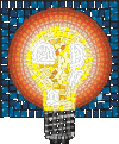Meditation 697
THE GODS (13)
by: Robert G. Ingersoll
To open a discussion on this article, please use the contact page to provide your comments.
When we abandon the doctrine that some infinite being created matter and force, and enacted a code of laws for their government, the idea of interference will be lost. The real priest will then be, not the mouth-piece of some pretended deity, but the interpreter of nature. From that moment the church ceases to exist. The tapers will die out upon the dusty altar ; the moths will eat the fading velvet of pulpit and pew; the Bible will take its place with the Shastras, Puranas, Vedas, Eddas, Sagas and Korans, and the fetters of a degrading faith will fall from the minds of men.
“But,” says the religionist, “ you cannot explain everything; you cannot understand everything ; and that which you cannot explain, that which you do not comprehend, is my God.”
We are explaining more every day. We are understanding more every day ; consequently your God is growing smaller every day.
Nothing daunted, the religionist then insists that nothing can exist without a cause, except cause, and that this uncaused cause is God.
To this we again reply : Every cause must produce an effect, because until it does produce an effect, it is not a cause. Every effect must in its turn become a cause. Therefore, in the nature of things, there cannot be a last cause, for the reason that a so-called last cause would necessarily produce an effect, and that effect must of necessity becomes a cause. The converse of these propositions must be true. Every effect must have had a cause, and every cause must have been an effect. Therefore there could have been no first cause. A first cause is just as impossible as a last effect.
Beyond the universe there is nothing, and within the universe the supernatural does not and cannot exist.
The moment these great truths are understood and admitted, a belief in general or special providence become impossible. From that instant men will cease their vain efforts to please an imaginary being, and will give their time and attention to the affairs of this world. They will abandon the idea of attaining any object by prayer and supplication. The element of uncertainty will, in a great measure, be removed from the domain of the future, and man, gathering courage from a succession of victories over the obstructions of nature, will attain a serene grandeur unknown to the disciples of any superstition. The plans of mankind will no longer be interfered with by the finger of a supposed omnipotence, and no one will believe that nations or individuals are protected or destroyed by any deity whatever. Science, freed from the chains of pious custom and evangelical prejudice, will, within her sphere, be supreme. The mind will investigate without reverence, and publish its conclusions without fear. Agassiz will no longer hesitate to declare the Mosaic cosmogony utterly inconsistent with the demonstrated truths of geology, and will cease pretending any reverence for the Jewish Scriptures. The moment science succeeds in rendering the church powerless for evil, the real thinkers will be outspoken. The little flags of truce carried by timid philosophers will disappear, and the cowardly parley will give place to victory – lasting and universal.

